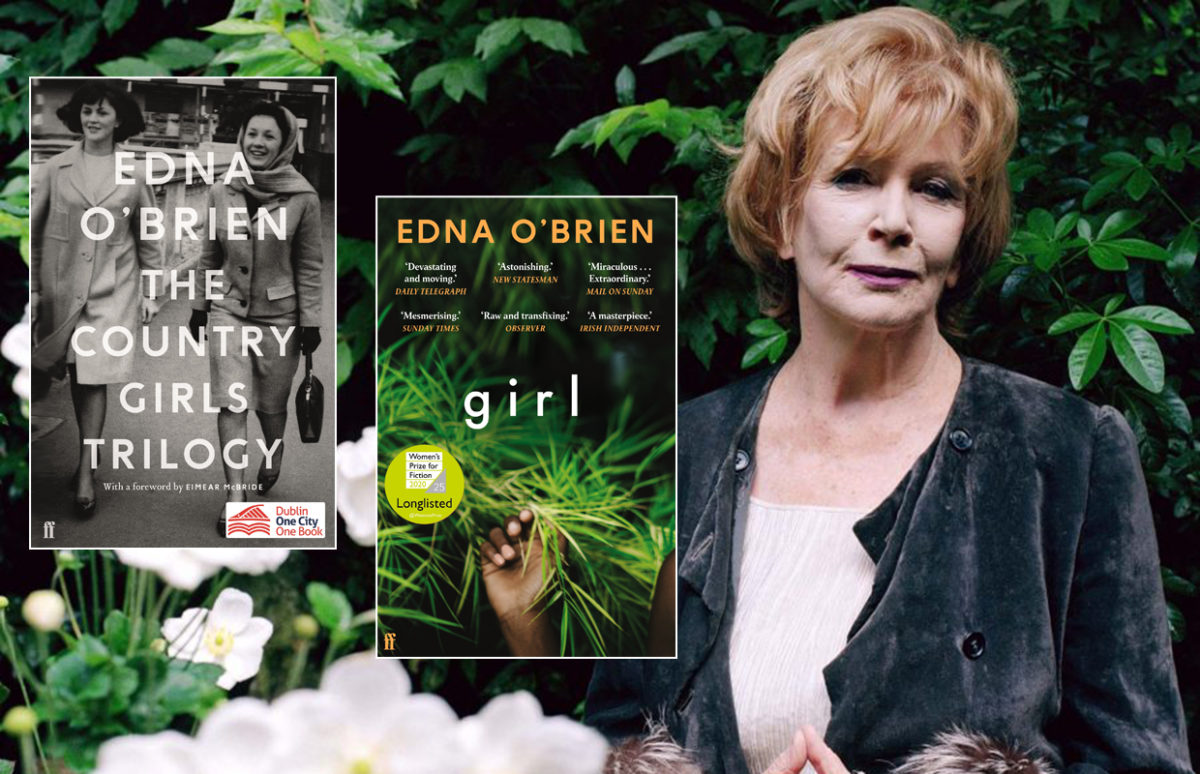Her books were once considered so scandalous that they were banned in Ireland, but at age 90, The Country Girls author Edna O'Brien received the honour of being declared a Commandeur de l’Ordre des Arts et des Lettres by French Culture Minister Roselyne Bachelot on 7 March.
O'Brien has been prolific since the first of The Country Girls trilogy was published in 1960. Written in just three weeks, it was an outpouring of the frustration of being brought up in the strict, stifling atmosphere of rural, Catholic Ireland. O'Brien was born in 1930 in small town County Clare. By the time she wrote her first novel, she had studied pharmacy in Dublin, scandalously married an older, divorced man, and moved to London to further his literary career. It turned out that she was the writing talent in the family, and the marriage didn't survive her success.
In the first book of the trilogy, Kate and Baba are expelled from convent school and set out to find love and excitement in Dublin. Over the course of the following two books, they will have generally unsatisfying sexual encounters and make marriages that are no more successful (the title of the third book is clearly ironic: Girls in Their Married Bliss (1964).
In the 1960s, Ireland was still under the thumb of the Catholic church, and "girls" were meant to become pure and faithful mothers and wives, not independent women. The books were banned, as were several of her later works. But for a generation of young women, sneaking in contraband copies, they were a revelation, a vision of a life that seemed a million miles away from their reality.
Portrait of the Artist
O'Brien says she had an appropriately epiphanic moment when she first read James Joyce, and knew she had to be a writer. One of the younger generation of Irish writers, Eilís Ní Dhuibhne, dubs The Country Girls The Portrait of the Artist as a Young Woman, a coming-of-age novel to rival Joyce's own. Like Joyce, she has spent her adult life outside Ireland but constantly drawn to write about it. To many Irish readers, she is the chronicler of their experience and society, over 28 books as well as short stories, plays, biographies and screenplays.
And then, in her late eighties, O'Brien suddenly decided to tackle a topic of which she had no direct knowledge. She was so moved by the fate of the Nigerian schoolgirls who were abducted by Boko Haram in Chibok in 2014 that she devoted her 2018 novel Girl to the story. Not one to be put off by difficulties, she made two arduous trips to the country to meet the released schoolgirls and the people working to help them overcome their trauma. The result is the story of young woman who is forced to bear the child of one of her abductors. When she manages to escape, she has to find a way to love the baby.
As O'Brien accepted her award on 7 March, there was still much of the spark of indignation at the fate of women in the world. The many authors and fans who paid tribute to her work expressed the hope that she will continue to surprise them with her words.
Like everything else these days, the ceremony took place on line. The Cercle Littéraire Irlandais, which hosted the event, has made a video available for 30 days, with the award by the Culture Minister, O'Brien's acceptance speech and warm tributes from the likes of author Collum McCann and actor Gabriel Byrne.





